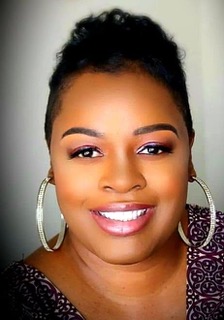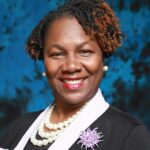By Rev. Cheryl Moore
We have suddenly found ourselves thrust into the depths of unchartered waters and unprecedented times. Perhaps the coronavirus has afforded us a first-hand depiction of what it means to live in perilous times. This season of uncertainty is challenging and stretching us in ways that we could have never fathomed. It feels as if we are entrenched in the clutches of a bad dream yearning to be awakened at the speed of light.
As faith leaders, we are experiencing the tension between the weight of our call and the necessity of our response. In the realities of our concern for our loved ones, we must uphold the responsibility of caring and providing solace to others. We are now forced to face our fears. We must face fears that perhaps we have camouflaged with all the religious rituals that we perform weekly. Yet, we are saddled with the task of encouraging others to lean more heavily into their faith while we struggle with our own. Not to mention, this pandemic is causing us to go against the grain of everything that we know to be love and show that love.
Our sense of community is shaken. The ability to gather has been stripped away. Gathering is at the core of who we are and what we do. The quintessence of our identity as a faith community centers our freedom to gather to worship our God, fellowship, celebrate, mourn, and partake in the holy sacraments together. I mean, these are rights, right?
As I wrestle with all the contingencies and contentions that COVID-19 has superimposed upon my life as well as my ministry, I must admit that even in this darkness, a great awakening is also in process. I believe that God is at work, simultaneously extending God’s grace in ways that we have not before experienced. I am more mindful than ever of God’s sovereign right to use a pandemic to offer us a privilege that can shift the trajectory of ministry. That privilege is the opportunity to engage in the exercise of re-imagination.
COVID-19 is teaching us lessons that we will be continuing to learn for years to come. The Church Universal has a unique window of privilege to seize this moment and apply these lessons for the greater benefit of our faith communities.
We’ve been given an undeniable gift of reimagination. We can now reimagine what it means to have faith.
This pandemic has exposed erroneous theologies that had established spiritual hierarchies within our churches. Our faith is not predicated upon desired outcomes. It’s simply based on trusting God with our unknowns. We are now learning that we do not have to choose between faith and fear. There is room for both. Our God is big enough to mitigate both our faith and fears. Mark 9:24 says, “I believe; help my unbelief!”
As we traverse the murky waters of this pandemic, we have also been gifted with the privilege to reimagine what “gathering” looks like. We have been forced to rethink what community is and alternative ways that “koinonia” can be achieved. What does community look like whenever we can no longer gather? Are we no longer a community of faith if we cannot interact in the same physical space together? Could it be that our authentic connection as believers is galvanized around the common unity of our core beliefs? Perhaps our lust for gathering had started to become inadvertently synonymous with our love for God. Innovative engagement is no longer the alternative but the new norm.
Finally, this pandemic has made us painfully aware of the fullness of our human frailty. God is granting us the privilege to reimagine and to rethink what inclusivity means. In some ways, COVID-19 is reaffirming and reminding us about the nature of God. Like God, this coronavirus is no respecter of persons. It has become the great equalizer. No one is exempt from being affected by COVID-19 in one way or the other. Individualism is not a viable concept for survival. We need each other in order to survive.
God has extended to us the grace and privilege to reevaluate how exclusive the church has been. Our particularities are no longer valid excuses. “Doing church” is unacceptable. We must “be the church.”
Rev. Cheryl D. Moore is pastor of Zion Temple United Church of Christ, Durham, North Carolina





